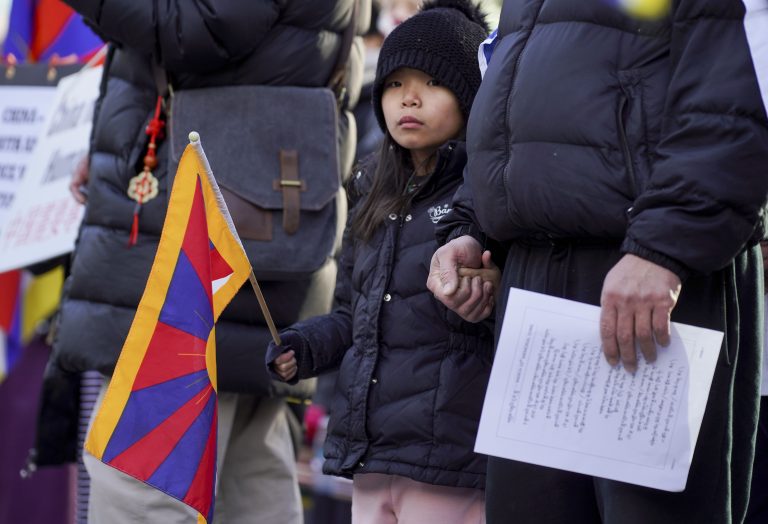Researchers at dozens of Canadian universities have for years collaborated with Chinese military scientists at China’s National University of Defence Technology (NUDT) on high-end and sensitive technologies and thus effectively contributed to the military modernization of Communist China. Such joint studies continue despite the known risks to national security.
Based on a study by U.S. strategic intelligence company Strider Technologies Inc., The Globe and Mail reported that 50 Canadian universities, including the top ones — the University of Waterloo, University of Toronto, University of British Columbia, and McGill University — have engaged in joint studies with China’s military institute NUDT between 2005 and 2022, covering fields such as quantum cryptography, photonics, space science, and even those related to guided missiles and eavesdropping. Some of the NUDT researchers working with Canadian universities are specialists in missile performance and guidance systems, mobile robotics, and automated surveillance. In the past five years, Strider found that joint research at 10 of the top Canadian universities has published 240 papers.
China’s NUDT was founded by the People’s Liberation Army (PLA) in the 1950s and has the “unique status” of being under the “direct leadership of the Central Military Commission”— China’s highest national defence organization, according to its official website. NUDT also said it is “heavily invested by the state and the military.”
NUDT started to use its current name in 1978, “under the direct care” of Deng Xiaoping, the then-leader of the Chinese Communist Party (CCP). In November 2013, when speaking at NUDT, CCP leader Xi Jinping promised to “accelerate the building of [NUDT] into a world-class university with Chinese military characteristics.”
NUDT was blacklisted in 2015 by the United States for export restrictions because Washington believes the Chinese military institute to be “involved in, or pose a significant risk of being involved in, activities that are contrary to the national-security or foreign-policy interests of the United States.”
Success
You are now signed up for our newsletter
Success
Check your email to complete sign up
The Strider report says that in collaboration with NUDT, the University of Waterloo has published more academic papers than any of Canada’s 50 educational institutions.
Between 2005 and 2022, University of Waterloo researchers published 113 joint papers with researchers affiliated with NUDT. Some of the research, which was published in 2018 and 2020, was about photonics, an important technology that uses light waves to gather intelligence.
In the same regard, the University of Alberta came in second with 99 papers, followed by McGill University (73), the University of Toronto (71), the University of British Columbia (57), Simon Fraser University (50), the University of Victoria (44), McMaster University (31), Concordia University (29), and the University of Calgary (25).
The Globe and Mail reported in May 2021 that the University of Alberta and the NUDT worked together on a lot of scientific projects. They shared and passed on research in fields like nanotechnology, biotechnology, and artificial intelligence that are strategically important for national security.
The studies conducted at McGill University with academics from the NUDT include projects on space-based laser interferometry and hypersonic propulsion systems. In 2020, scientists collaborated on using satellites to guide multiple spacecraft. One of the Chinese researchers is Lei Chen, an expert in missile guidance and control systems.
The joint research at the University of Toronto with the NUDT dealt with aerospace science, satellites, and microchips. One of the NUDT scientists, Yuan-He Liu, works on guided-missile performance systems for the PLA and presented a paper on spacecraft in 2019.
The collaborated research at UBC dealt with telecommunications security, aircraft design optimization, and signal processing, while at the University of Calgary, it was about quantum repeating, mobile mapping, and remote sensing.
In 2021, a group of scientists from both universities published an epidemic model to study the spread of COVID-19. Yanghui Fu, one of the Chinese authors, has also conducted research on using artificial intelligence to wargame a “ship-defence scenario that includes multiple aircraft and ships,” according to the Globe.
Along with public Canadian universities, a federal agency called the Natural Sciences and Engineering Research Council (NSERC) has also worked with Chinese military scientists on research projects.
READ MORE:
- Is the US Gearing Up for a War With Pandemic-weakened China?
- Politicians Hype Threat of Chinese Spy Balloon That Floated Across US Before It Was Shot Down
- Shen Yun’s 2023 Performance Wows Audiences in Washington DC, Recognized by Senior Officials

Warned risks
The Canadian Security Intelligence Service (CSIS) has been warning Canadian academic institutions for a long time about foreign espionage activities conducted through academic research.
In recent years, CSIS has amplified its warnings to universities and private-sector research facilities about the potential risks of collaborations with foreign partners. Some of its worries came from the fact that it wanted to protect research that had been started during the early stages of the pandemic. Other worries had to do with things that have always been important to national security, like energy storage, quantum technology, critical minerals, and technology that could be used for both military and civilian purposes.
The intelligence agency says that Canada needs to be especially careful about communist China, or the People’s Republic of China (PRC).
“To further its national interests, the PRC’s military-civil fusion policy blurs the lines between the civilian and military research industries. This means that any Canadian research targeted by the PRC may contribute to China’s military modernization,” said CSIS spokesperson Brandon Champagne. “The National University of Defence Technology’s name alone suggests there exists a Chinese military component to its activities.”
The CSIS tried to get the message across that Canada’s long-standing policy of scientific openness may give foreign governments access to the country’s most cutting-edge research without their knowledge.
According to a report by the Institut de Recherche Stratégique de l’Ecole Militaire (IRSEM), a French government-funded think tank, China is trying to influence Canada in many ways through the academic world, including that of international students in Canada to steal academic research for Beijing.
Published in 2021, the IRSEM report detailed how Chinese students can also help shape attitudes toward the CCP on campus by exerting pressure on dissident voices or professors. The report also quoted CSIS director David Vigneault, who said in 2018 that with human-enabled espionage, China is “clearly and significantly” the biggest threat to Canada’s universities.
Responses
Partly in response to a changing global security environment marked by increasingly aggressive authoritarian regimes such as China, the government of Canada introduced the National Security Guidelines for Research Partnerships in July 2021. The guidelines require researchers applying for NSERC grants to complete a security risk assessment. Any project assessed to be “higher risk” would be subjected to a national security review by Canadian security agencies and a team of scientists. If a project is deemed too risky, it will not receive federal funding.
“While the vast majority of research partnerships have transparent intentions that provide mutual benefits to all research partners, some activities by foreign governments, militaries, and other actors—such as foreign interference and espionage—pose risks to Canada’s national security and the integrity of its research ecosystem,” the Government of Canada said in a news release.
The additional security rules haven’t stopped Canadian institutions from working with China, though. According to the Globe, none of the top ten universities that have worked with NUDT have stopped their researchers from doing future work with the Chinese institution.
Some of those Canadian universities, in response to inquiries from the Globe, cited a common reason for continuing research collaboration with the NUDT: any order to terminate such academic cooperation must come from the federal government. However, no such order has been issued by the Canadian government.
“On matters of national security, universities look to Canadian authorities for actionable direction, and there is no direction from such authorities to preclude the co-authoring of the research papers you describe,” University of Toronto professor Joseph Wong told the Globe.
READ MORE:
- Chinese Interest in Private Health Insurance Spikes as Pandemic Smolders
- Mount Hope, NY Celebrates the Year of the Rabbit
- China Staggers Under Huge Pandemic Losses
Recently, NSERC said that about two-thirds of the research grant applications it sent to Canada’s national security agencies for review were deemed to pose an unacceptable risk and were therefore not given funding, as required by the tightened rules to protect intellectual property from authoritarian governments.
NSERC said it sought advice from federal security agencies on 48 applications for funding under the country’s research partnership framework, about 4 percent of all applications. Of the applications sent for review, 32 were deemed to pose an unacceptable risk or a risk that couldn’t be appropriately mediated. Only 14 proposals were approved for funding after being referred to the security agencies.
Margaret McCuaig-Johnston, former executive vice president of NSERC and now a senior fellow at the Institute for Science, Society and Policy at the University of Ottawa, noted that the new security guidelines only cover federal grants and not individual academic research with China’s military, while China offers a lot of money to Canadian researchers and universities to work with them.
“The People’s Liberation Army is not our friend and we should not be partnering with them,” she said. “Any collaboration with the National University of Defence Technology is clearly going to a military purpose and Canadian researchers should be using their own personal ethical lens to decide not to move forward with that research.”
Greg Levesque, CEO and co-founder of Strider, said that Canadians should be concerned that Chinese scientists are using their world-class research facilities to work on Beijing’s military programs.
“It’s a no-brainer,” Mr. Levesque said. “Checks and balances need to be put in place within academia to level the playing field and protect open scientific collaboration. … University administrators need to take more proactive measures to address these security gaps.”













